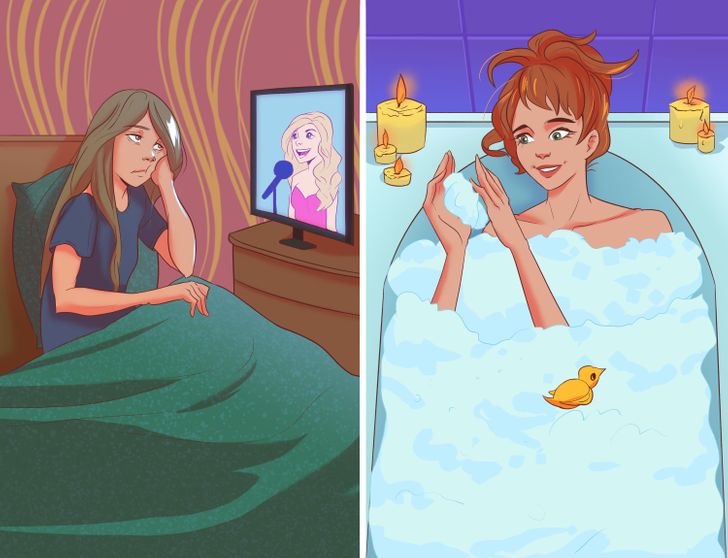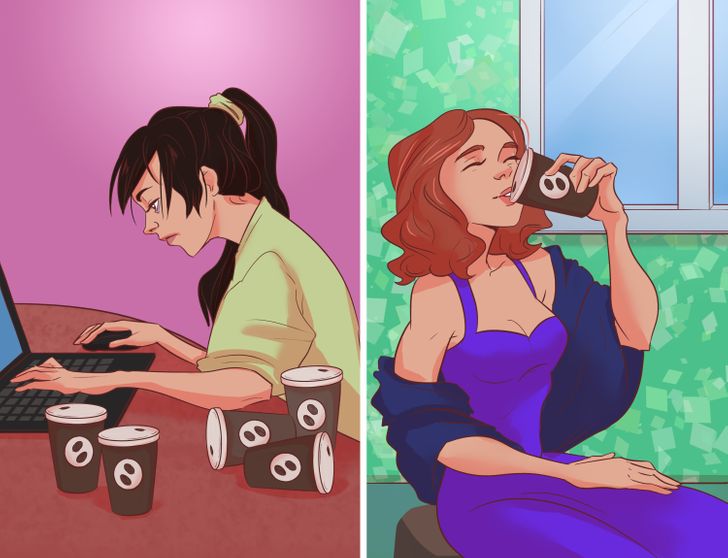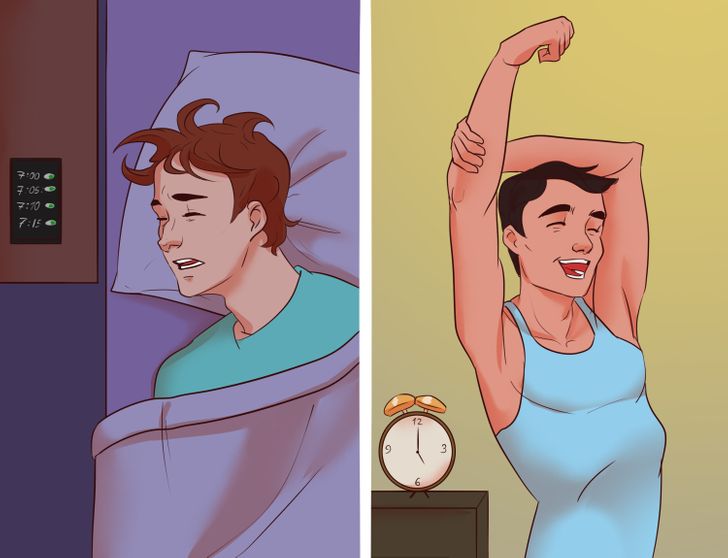If it takes more than 30 minutes to fall asleep after bed, or if you wake up and stay awake for more than 20 minutes in the middle of the night, you should improve the quality of your sleep. The best way to do this is to make sure your daily habits don’t interfere with your sleep needs.
We’ve put together a series of tips that can help you develop a regular sleep pattern and improve the quality of your sleep.
Worst Habits That Ruin Sleep and Cause Insomnia
Using Screens Before Sleeping

Your brain needs relaxing activities before bed to prepare for a good night’s sleep. Television often overstimulates your brain, which can make you feel anxious without you even realizing it.
Blue light emissions block the production of melatonin, the hormone responsible for sleep. This makes it more difficult to fall into a deep sleep.
Instead: turn off the phone (or any other screen) 30 minutes before going to bed and reading a book or taking a shower to relax. If you wear glasses, you can also add a blue light blocking feature to your glasses to protect them from blue light.
Not Having A Stable Sleeping Pattern

The circadian rhythm, your biological clock, controls the number of hours we sleep each day, as well as when we sleep and wake up. Playing with your cycles, even just once, can have a huge impact on the quality of your sleepover several days.
This does not mean that you have to wake up at 7 AM Every day. Owls naturally sleep after midnight and wake up later. This represents around 20% of the population.
Instead: find out what your pattern is and follow it. If you go out late at night or have to get up very early in the morning, try taking a nap during the day and then sleeping at your usual time.
Overeating Before Bed

If your most important meal is after 3 PM, it means you ate late. Several studies have shown that there is a link between late intake and acid reflux and indigestion, which in turn affects the quality of sleep.
Eating late is also linked to difficulty losing weight, and obesity can cause sleep apnea and other sleep disorders.
Instead: avoid eating large meals 3 hours before bedtime. Desserts and junk food shouldn’t be late-night snacks. Drink unsweetened chamomile tea.
Ignoring Your Caffeine Curfew

Caffeine tricks your body into thinking you’re not tired, and while the effect may wear off after a few hours, your body still has a lot of caffeine to deal with, even in the next 10 hours after espresso.
Unfortunately, many people don’t know that coffee is not the only caffeinated beverage. Chocolate, energy drinks, most teas, and sodas are high in caffeine. Even hot chocolate contains enough caffeine to keep you from sleeping soundly.
Instead: limit your caffeine intake and try to drink only in the morning. The less you drink, the better it will be when you actually do! So it’s a win-win situation.
Snoozing

There have been many rumors about the fact that napping is harmful to health. According to this expert, napping isn’t necessarily unhealthy, but the extra 9-minute sleep certainly isn’t. In fact, napping increases levels of cortisol, also known as the stress hormone.
Instead: Think of waking up as a ritual. You need to take the time and wake up relaxed to start the day with a low level of stress. Calculate your sleep cycles and set your alarm accordingly.
Is It Good For Your Health To Sleep With Wet Hair?
In 2012, Turkish scientists conducted a study to see if sleeping with wet hair during cold weather actually caused nausea. It turns out that, as we mentioned before because wet hair makes you feel cold, your sinuses react by secreting mucus, as if you actually have a cold. This accumulation of mucus often results in an infection.
Have you ever had trouble sleeping? What daily habits did you have that affected you? Share your ideas with us in the comments!


